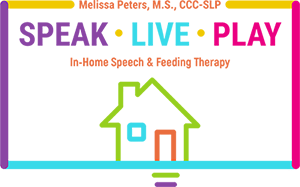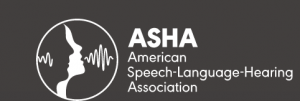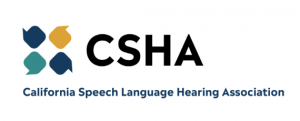Guillain Barre Syndrome and Speech Therapy
Guillain Barre Syndrome (GBS) primarily affects nerve cells in the brain’s bulbar region. Bulbar neurons are responsible for speech and swallowing, and as they degenerate, the patient develops dysarthria (slurred speech) and dysphagia (difficulty swallowing). Speak live play SLPs offer numerous strategies to expedite the recovery process, or at least facilitate proper communication in severe cases. Fortunately, you can make a full recovery from GBS, especially if you’re proactive about seeking help from a certified speech language pathologist.
What is Guillain Barre Syndrome?
Guillain Barre (GEE-Yan-Buh-RAY) is a rare syndrome where the immune system attacks the nerves. There are several different versions of the condition, but the most common version of the syndrome, which attacks between 3,000 to 6,000 people in the United States each year, targets peripheral nerves. These are the nerves that connect the brain and spinal cord to the rest of the body.
GBS causes rapid deterioration of motor neurons. It can happen over a period of days or even hours. The most noticeable symptom is speech and voice impairment, coupled with mild to severe dysphagia, and ultimately respiratory problems. Most people recover from GBS, especially with prompt care and attention from an SLP.
Speech and Swallowing Changes in Guillain Barre Syndrome
- Speech Changes
The majority of patients with GBS will eventually develop communication problems because the syndrome affects the nerves that control the muscles used in speech. Severe cases of the syndrome require the use of Alternative Augmentative Communication (AAC) tools to facilitate proper interaction.
GBS causes the following change in speech:
Dysarthria commonly develops due to the neurological damage the disease causes. The speech disorder arises specifically when it’s the nerves that control speech muscles that are impacted.
Dysarthria is usually characterized by slow, “thick” speech and extreme difficulty articulating words. Patients may also find it difficult to project their voice, which drastically affects the quality of speech.
Dysarthria exists in two variations: flaccid dysarthria, which is caused when muscles become denerved, and thereby weak, and ataxic dysarthria that manifests as slurred speech with inconsistent errors. Both types of dysarthria make it difficult to understand the patient.
- Swallowing Changes
Patients with GBS may also find it difficult to swallow when the syndrome affects the nerves that control swallowing muscles.
GBS causes the following change in relation to swallowing:
- Dysphagia
Dysphagia is the clinical term for difficulty swallowing. It can turn out to be extremely dangerous if the patient’s immune system has been weakened, which is often the case in GBS.
When we swallow normally, food, saliva, and liquid goes down the throat and branches into the esophagus, avoiding our airway. When small particles of food mistakenly enter our airway, an automatic reflex action (coughing) ensures that they’re expelled.
Patients with dysphagia may lack this cough reflex. When food or liquid enters their airway, they may not feel it due to the denervation of respiratory muscles. If they do feel it, they may not be able to cough it up due to lack of strength in those particular muscles.
This may lead to aspiration, which is the medical term describing the ingress of food and liquid into the airways and lungs. Aside from carrying a significant risk of choking, aspiration can cause severe respiratory implications such as pneumonia.
How Speech Therapy Can Help
Improving communication
Speech and language pathologists can help patients with GBS to communicate more effectively despite speech problems like dysarthria. They achieve this using a combination of strategies and assistive technology.

Some of the strategies they may recommend to a patient with GBS include:
- Over articulating words – Moving the mouth more than usual can help sound out certain words better and even reduce nasality when communicating. This leads to clearer verbal speech, even when dysarthria sets in.
- Reducing their speaking pace – Talking more slowly may benefit both the speaker and the listener, especially if there are significant pauses between words.
- Increasing their speaking volume – To compensate for the lack of articulation, patients may find that talking loudly improves their speech and makes it easier for others to understand them.
- Restricting communication to quiet environments – It is advisable to eliminate all background noises so that the patient can be heard more clearly, and doesn’t have to struggle when speaking.
Reducing the risk of aspiration
Weakened respiratory muscles pose a great risk to the health of the patient. After assessing the patient’s swallow function, our SLPs may recommend the following strategy to assist with swallowing difficulties:
- Artificial nutrition – Minimizing the risk of aspiration may sometimes necessitate switching to artificial nutrition sources that can be administered intravenously. This reduces the chances of the patient choking or aspirating on foods and liquids that accidentally get into their airway.
Substituting verbal communication
For patients that are attached to mechanical breathing support (ventilators) and therefore cannot speak, SLPs recommend alternative forms of communication.
This may be facilitated by an AAC tool. AAC tools include smartphones and tablets that support Text-To-Speech (TTS) functionality as well as rudimentary tools like sketch boards, papers, and letter charts.

In cases where the patient is unable to move completely, SLPs may implement communication techniques that allow them to communicate using their eyes only. A single blink for yes and two blinks for no is one of the most common non-verbal communication used by patients with severe GBS.
Goals for Guillain Barre Syndrome Treatment
After assessing the severity of the condition, either by testing the patient’s speech ability or swallowing function, our speech language pathologists approach every case of GBS with the following goals in mind:
- To restore or improve communication – Weakened speech muscles pose a significant challenge when it comes to verbal communication. SLPs use strategies like overarticulation and lip reading, plus they encourage interactions in quiet, well-lit environments to improve patients’ communication abilities.
- To prevent aspiration – Dysphagia can turn out to be a grave concern for patients with GBS, especially because it might lead to choking and a severe respiratory illness (pneumonia) if left unchecked. SLPs may recommend switching to alternative forms of nutrition, proper positioning while feeding, or the avoidance of certain textures of food to minimize the risk of respiratory damage.
- To facilitate non-verbal communication – Even when patients are attached to ventilators, they still retain their cognitive functions. That means they’re able to communicate non-verbally. After assessing their state, an SLP may recommend various forms of alternative communication depending on budget and ease of use.
Why Speak Live Play?
Speak live play is one of the most sought-after resources for speech therapy, particularly when it comes to rare syndromes like GBS. That’s because our speech language pathologists are qualified and well-versed in the strategies that are necessary for the proper care of patients with the condition.
Speak live play caters to people of all needs, whether you prefer to visit our clinic or would like us to come to you. We offer in-home therapy as well as specialized care for kids and geriatric adults to suit every individual’s need, and to ensure that all our patients are cared for the right way.
Sources
- https://www.esht.nhs.uk/service/speech-and-language-therapy/communication-and-swallowing/guillain-barre-syndrome/guillain-barre-and-communication-difficulties/
- https://www.esht.nhs.uk/service/speech-and-language-therapy/communication-and-swallowing/guillain-barre-syndrome/guillain-barre-and-swallowing-difficulties/
- https://pubs.asha.org/doi/10.1044/sasd21.4.115
- https://www.shepherd.org/patient-programs/Guillain-Barre-Syndrome
- https://memorialhermann.org/services/treatments/guillain-barre-syndrome-rehabilitation
- https://www.guillainbarresource.com/rehabilitation-therapists.html




